Rise of Ultra-processed Foods
Back in the mid-1990s, Carlos Monteiro, a nutrition expert from Brazil, noticed a concerning trend: More and more children in his country were becoming overweight.
To unravel this puzzle, Monteiro and his team from the University of São Paulo delved into data on what families were buying at the grocery store. What they discovered was shocking: Instead of traditional foods like rice, beans, and cooking oils, people were loading up their carts with sugary drinks, processed meats, instant noodles, and packaged snacks.
To describe this shift, Monteiro coined a new term: ultra-processed foods (UPFs). These are foods that have been heavily processed and often contain additives and preservatives. Later research by Monteiro’s team would connect UPFs to weight gain in both children and adults across Brazil.
Risks of Ultra-processed Foods
Since then, scientists have discovered connections between ultra-processed foods (UPFs) and various health issues such as heart disease, diabetes, obesity, stomach problems, feeling down, and even a shorter life. This is worrying because these foods have become a big part of what people eat worldwide. In the United States, for instance, UPFs make up 67 percent of what kids and teens eat.
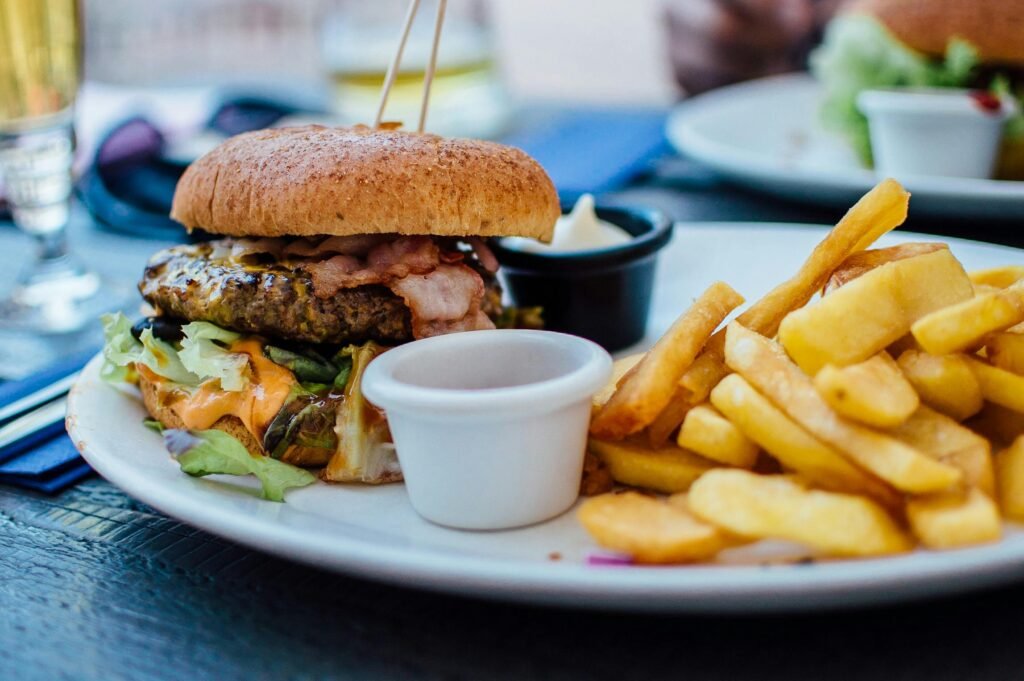
But there are still a lot of things we don’t know. What exactly are ultra-processed foods? And how sure are we that they’re bad for us? We asked experts to explain these questions and more.
What exactly are ultra-processed foods?
To understand how foods are made, Dr. Monteiro and his team created a food sorting system called Nova. It’s named after the Portuguese and Latin words for “new.” People all over the world now use it.
The Nova system divides foods into four groups:
1. Unprocessed or minimally processed foods include things like fresh or frozen fruits and veggies, beans, meat, fish, eggs, milk, yogurt, rice, pasta, flour, coffee, tea, and herbs and spices.
2. Processed culinary ingredients are things like cooking oils, butter, sugar, honey, vinegar, and salt.
3. Processed foods are created by mixing foods from Group 1 with the ingredients from Group 2. Then, they’re kept or changed using simple methods like canning, bottling, fermentation, or baking. Examples include freshly baked bread, most cheeses, and canned veggies, beans, and fish. They might have preservatives to make them last longer.
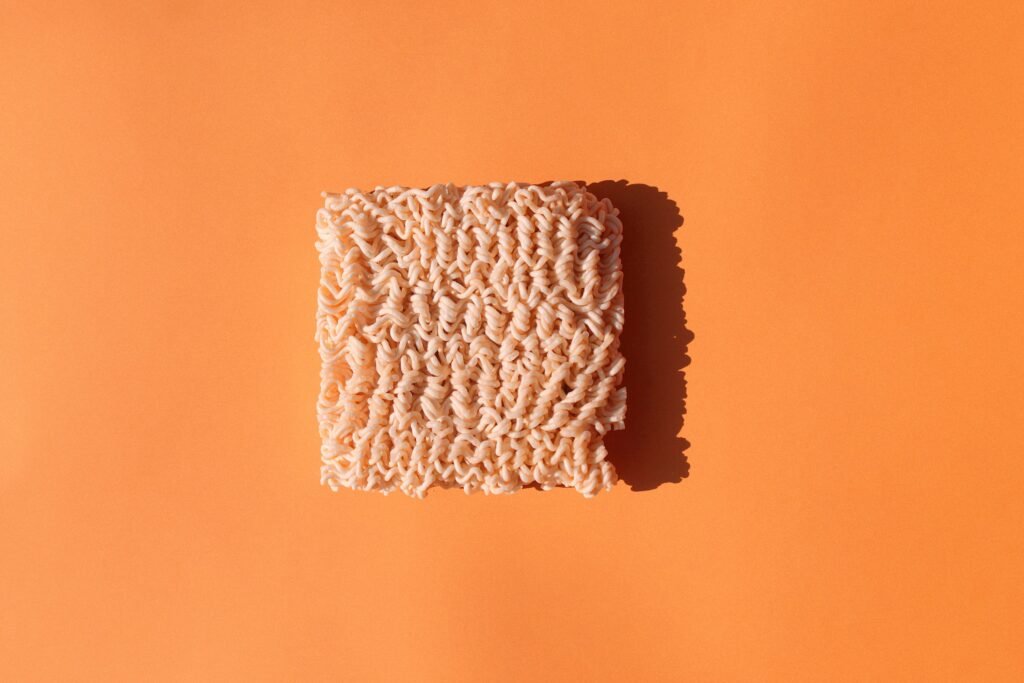
4. Ultra-processed foods are made in factories using methods and ingredients you don’t usually find in regular stores. These ingredients include stuff like high-fructose corn syrup, hydrogenated oils, and concentrated proteins. They also add things like flavorings, colors, and emulsifiers to make them taste better. Examples of ultra-processed foods are sodas, chips, candies, flavored yogurts, margarine, chicken nuggets, hot dogs, lunch meats, boxed macaroni and cheese, infant formulas, most packaged bread, plant milk, meat substitutes, and breakfast cereals.
“If you check the ingredients and find stuff you wouldn’t normally use at home, it’s likely an ultra-processed food,” explained Brenda Davy, a nutrition professor at Virginia Tech.
The Nova system doesn’t group foods based on things like fat, fiber, vitamins, or minerals. Maya Vadiveloo, a nutrition professor at the University of Rhode Island, said it’s “The Nova system doesn’t group foods based on things like fat, fiber, vitamins, or minerals. Maya Vadiveloo, a nutrition professor at the University of Rhode Island, said it’s “agnostic to nutrition.”
This has caused some disagreement among nutrition experts about whether it’s helpful for showing how healthy a food is. Dr. Vadiveloo mentioned that many ultra-processed foods, like whole grain bread, flavored yogurts, and baby formulas, can still give you important nutrients.
Are ultra-processed foods damaging to health?
Most of the research showing that UPFs are bad for health comes from studies where scientists ask people about what they eat and then follow their health for many years. In a big review of these studies from 2024, scientists found that eating UPFs was linked to 32 health issues. The strongest evidence was for heart disease, Type 2 diabetes, and mental health problems like anxiety and depression.
These studies are helpful because they can look at lots of people — the 2024 review included info from almost 10 million! They can see how things change over many years, which is important for diseases that take a long time to show up, said Josiemer Mattei, a professor at Harvard’s School of Public Health. She thinks the consistent link between UPFs and health issues shows there’s a real problem with these foods.
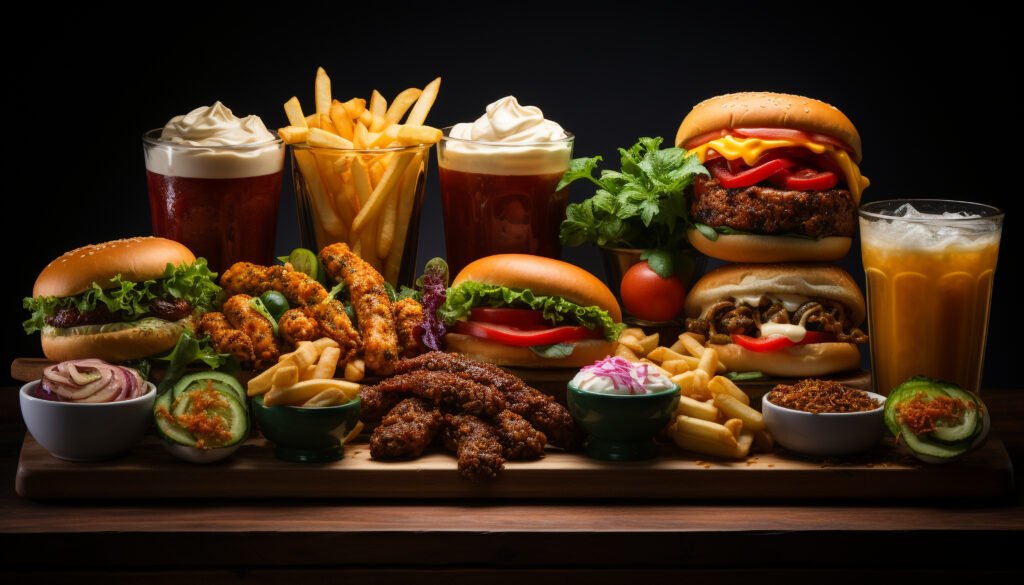
But these studies also have limits, said Lauren O’Connor, a nutrition scientist. There’s a connection between UPFs and chronic diseases, but it doesn’t mean these foods directly cause health problems.
Dr. O’Connor wondered if it’s really useful to put very different foods, like Twinkies and breakfast cereals, in the same group. Some ultra-processed foods, such as sodas and processed meats, are clearly more harmful than others. But others, like flavored yogurts and whole grain breads, have actually been linked to a lower risk of getting Type 2 diabetes.
Need for Clinical Trials on Ultra-processed Foods
Dr. O’Connor believes that we need clinical trials to see if UPFs directly cause health issues. So far, only one small study has been done, and it had some limitations.
In this study from 2019, 20 adults stayed in a research hospital for four weeks. For two weeks, they ate mostly unprocessed foods, and for another two weeks, they ate mostly UPFs. Both diets had the same calories and nutrients, and the participants could eat as much as they wanted.
During the two weeks on the ultra-processed diet, the participants gained an average of two pounds and ate about 500 extra calories per day compared to the unprocessed diet. However, during the unprocessed diet, they lost about two pounds.
Kevin Hall, a researcher at the National Institutes of Health who led the trial, thinks this might explain why UPFs are linked to obesity and other health issues. However, the study needs to be done again to be sure, which Dr. Hall is working on now.
What makes UPFs potentially harmful?
There are a lot of ideas about why ultra-processed foods might not be good for us, Dr. Hall mentioned. But there’s not much solid science yet on exactly how they’re bad for us.
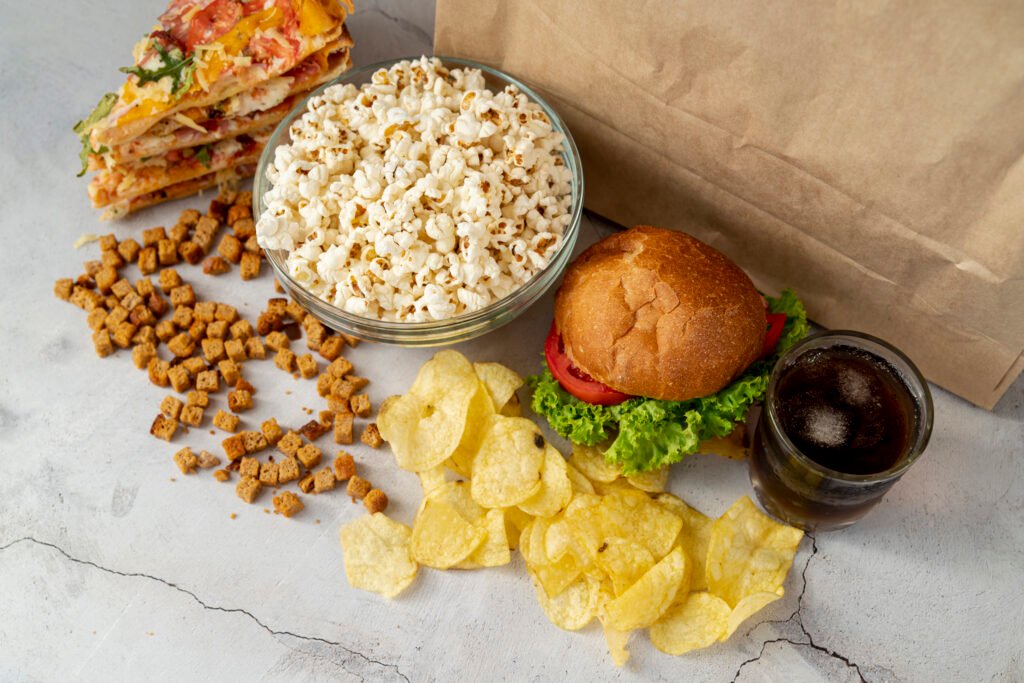
Dr. Hall thinks one reason UPFs might be harmful is because they’re often cheap and easy to get, so people might eat them instead of healthier foods. But he and other scientists also think these foods could directly affect our health. They might be easy to eat too much of because they’re packed with carbs, sugars, fats, and salt, and they’re high in calories and easy to chew. They could also make our blood sugar spike, which might hurt our arteries or make our bodies more inflamed. Some of the things added to these foods might mess with our hormones, make our guts leaky, or mess up the good bacteria in our guts.
Researchers like Dr. Hall and Dr. Davy are starting to do small tests to see if these ideas are true. If they are, it might help us figure out which UPFs are the most harmful and maybe even how to make them better for us, Dr. Hall said. But most scientists think there are lots of different ways these foods could be bad for us. “In nutrition, it’s rare for just one thing to explain why a food is good or bad for us,” Dr. Vadiveloo added.
How can we handle ultra-processed foods?
In 2014, Dr. Monteiro helped create new healthy eating rules for Brazil. These rules say people should try not to eat ultra-processed foods.
Some other countries, like Mexico, Israel, and Canada, have also said it’s best to stay away from or not eat too much of ultra-processed or “highly processed” foods. But in the United States, the food rules don’t say this. However, a group that gives advice about food is thinking about how ultra-processed foods might make people gain weight. This could change the rules in 2025.
Deciding what to do about ultra-processed foods in the U.S. is hard. Dr. Hall said that so much of the food we eat here is already ultra-processed. And some people who don’t have a lot of money rely on these foods.
“At the end of the day, these foods are still an important way for people to get food, and food is food,” said Dr. Mattei. “We shouldn’t make them out to be bad,” she said.
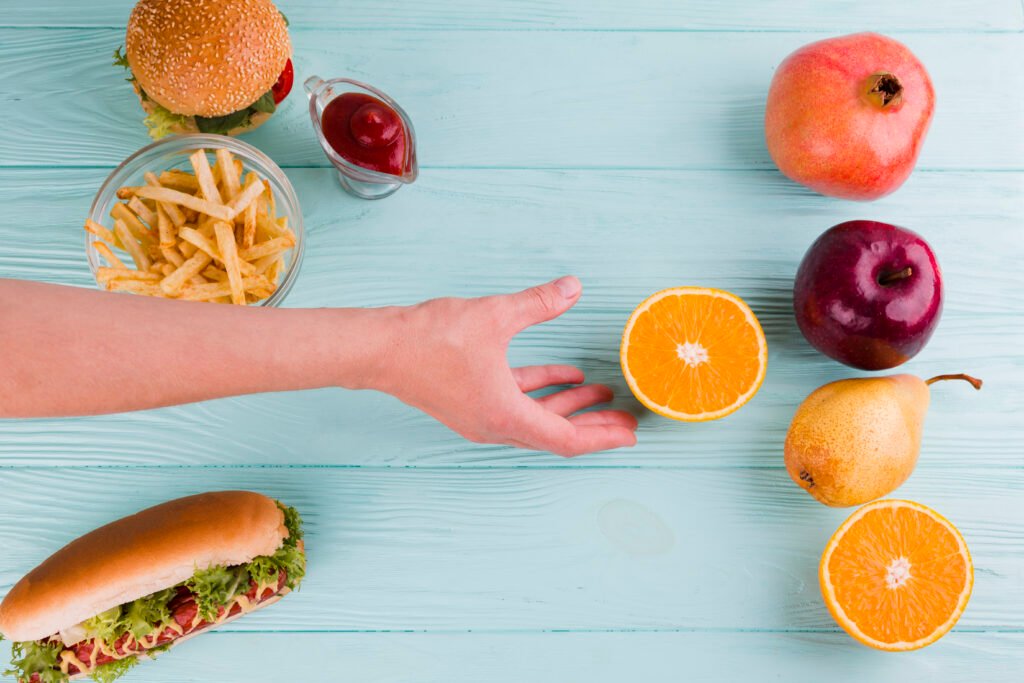
[…] spicy or Ultra-processed food might make you sweat, but it’s good for your heart. A review in a science journal from 2022 […]